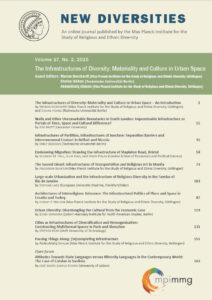OPEN FORUM
Attitudes Towards State Languages versus Minority Languages in the Contemporary World: The Case of Catalan in Sardinia
by José María Santos Rovira (University of Lisbon)
To cite this article: Rovira, J. M. S. (2015). OPEN FORUM ARTICLE: Attitudes Towards State Languages versus Minority Languages in the Contemporary World: The Case of Catalan in Sardinia. New Diversities, 17(2), 163–176. https://doi.org/10.58002/gmv6-e431
The dichotomy of state language versus minority languages is a well-known subject among linguists. However, there are several competing perceptions of the role that minority languages play in society. In Italy, Catalan is a minority language and has been spoken for centuries in the Sardinian city of Alghero. Today, however, its survival is uncertain. Why have Algherese people progressively abandoned the Catalan language over last few decades? To answer this question, we begin by reviewing the range of scholars‘ interpretations of the motivations and attitudes that lead people to reproduce or abandon minority languages. In this article, I argue that there is an unavoidable link between social systems and linguistic practices that determines the consolidation or extinction of some languages, as has happened in Alghero, where the traditional language is at risk due to changes in social structure.
Keywords: Algherese, Catalan, Sardinia, state language, minority languages, linguistic attitudes
|
